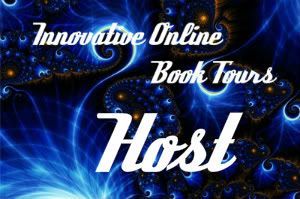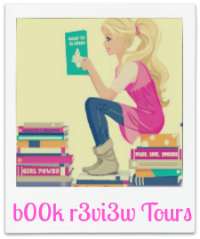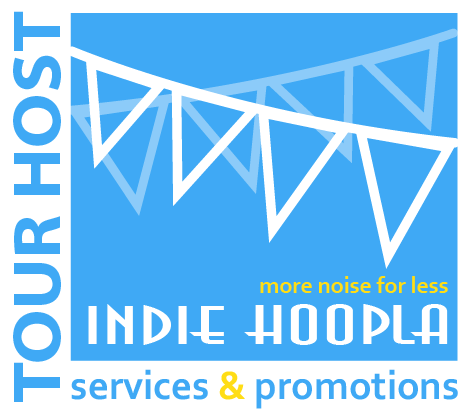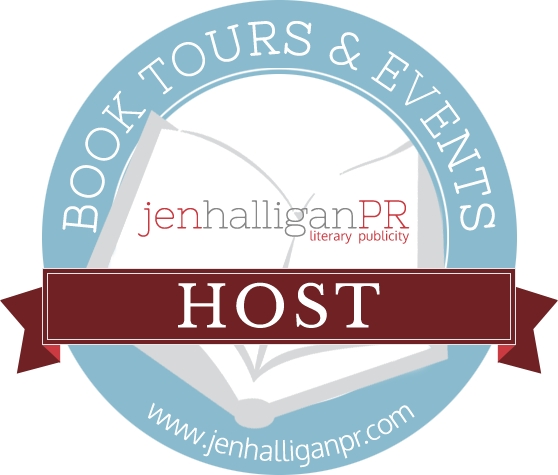Small
print
By
Andi Katsina
www.theindieoracle.com
www.theindieoracle.com
Now come on, be honest,
if you had to select some ginger root, would you choose based on how
tasty it looked, or how easy you thought it would be to peel? Yeah,
me too : )
How easy can it be for an
Indie Author to proceed in the signing of a contract with a major
publishing company? From what I know, very easy indeed… however,
what I don’t know is how good that contract tastes after you’ve
assigned your manuscript to the inky halls of the traditional
publisher.
Issues to consider 1, 2,
3….
- Length of publishing deal; what is the duration of the contract? Try as they may, the publishers might not have great success with your first edition. A direct consequence of the first edition not selling enough copies, could well be that the publisher is reluctant to run a second edition, leaving your book effectively out of circulation for the duration of the publishing contract. In which case you will not be able to approach any other publisher, and you won’t be able to self-publish and promote the book yourself on a continuous basis. Related to this will be the question; does the publisher agree to publish a certain number of copies of the book? This may counter balance the ‘unit over time’ factor; the amount of books published over the duration of the contract… if this extends only to a failed first edition publishing, then you will not be having that many books published, no matter how long the contract lasts).
- Is the contract only for an ecopy publishing deal?Personally, as an environmentalist, I welcome the ‘only ecopy situation’. However, we stand at the precipice of an new publishing arena, Electronic, and as such an avenue to reach those readers who have not yet switched to the reading tablet delivery system, must continue to remain current; the physical store, hard copy edition. In entering such a contract, consider this; which on-line outlets does the publisher use. Doubtless the publisher’s own website will be their primary hub, but just exactly how popular is that website as a source of sales? What other outlets do they use? Amazon, Barnes & Noble, all the usual estores? We’re not seeing any difference here to the sales channels already available to an Indie publisher / Indie Author working without an ‘epublishing contract’. Most Indie Authors / publishers reach their readership through a network of roads; Kindle, Apple, Lightensource, Smashwords, Createspace, Amazon, Barnes & Noble etc… so unless the traditional publisher’s website can offer phenomenal sales, which in reality only needs to be in the many hundreds of copies, then the royalty percentage they offer needs to be as competitive as the outlets you are able to channel your owns sales through without their ‘ecopy contract’, otherwise you’re simply letting the publisher creep in as a middleman where a middleman is completely unnecessary. As mentioned, unless the publisher’s website can rake in massive sales, there really is no need to go down that contract road. Least we disregard the biggest benefit of this type of contract, which comes in the form of the editing and formatting presentation an established publisher can offer. But once again, with such a flourishing Indie Publishing industry, more and more Indie Authors have this angle covered. We are well aware that in addition to a great story, our readers deserve a well presented book, in which case a contract with a traditional publisher for an epublishing deal simply may not offer enough to deserve a share of your royalties. On the other hand, if we’re talking about contracting with traditional publishers for a hard copy publishing deal, this is where things could become very interesting, and the benefits….
- Do you need a literary agent?I’d say so, yes. All the contract issues raised and needing to be carefully examined, could, most probably, be smoothed into happy accord by a literary agent, however most Indie Authors have been left to navigate the publishing field solo. If you are fortunate enough to be negotiating a genuine offer to contract with a traditional publishing company for a hard copy edition of your book, then unless you have exceptional knowledge of the legal aspects of both party’s contractual obligations, then you really ought to consider getting an agent to represent you. ‘Not so easy’, I hear you say, quite right… let me correct my English and replace ‘getting’ with ‘hiring’. Sure we know how demoralising it can be trying to persuade an agent to represent you for a share of your royalties, whether or not it would be a deserved share, but if you have a contract on the table, it should be altogether possible to get an agent interested. In this instance you may be better served to ask the agent to represent you only on a one deal basis, and see how it goes from there. Should you rely on your agent to present you with all the facts of the contract? This is up to you, but answer this, would you really want to burden an agent, or friend, with having to shout out driving instructions to you from the back seat of a car, while you ride idly up front with a scarf tied across your eyes because you have a bit of a migraine? It’s not fair to let your agent presume you’ve completely understood every word of the contract as they’ve explained it to you. Unless they’re top of the range, they will only explain everything in general. Specific points will need to be raised by you, which you can only do after having painstakingly examined every word. Seem to be labouring the point a little now don’t I? What, almost sounding like one of those people who in the past have downloaded software from a disc or the internet and clicked the ‘I agree’ box without actually reading the terms and conditions, ah, feel my pain : ) Don’t let the prospect of the mighty deal have you signing up with all and sundry who want nothing more than to chip away at your royalty rights. Tread carefully, cautiously and confidently my fellow Indie….
Editing, make sure that
you have the final ok on this; otherwise you could end up with a
story that you can hardly recognise. There might be a percentage
clause in relation to this, for instance, the right to change such
and such a percentage, where none is specified, it is tantamount to
an open license to rewrite your masterpiece…. You certainly need to
consider the amount of editing power the traditional publisher
features into the agreement. On the other hand, the publisher’s
editors seem well geared to trimming and shaping your wordage into a
highly sellable good read. Personally I really like my stories, and
will only very reluctantly give way to the least amount of editing,
if doing so will somehow make the story into a much better read for
my readers, otherwise I’d prefer no editing at all, apart from that
which has already been applied. Of course signing your contract
without considering this issue will take the editing choice right out
of your hands. If you want to have a say so on the final edited book,
it needs to be written into the contract.
Same goes for the cover
artwork. My books’ jackets are already designed well ahead of time.
I’m not sure, but can imagine this issue will also be a feature the
publisher wishes to lay claim to. If you’re happy to allow the
publisher first and last word on your book’s jacket, they’ll
probably do a good job. If you want more of a say in the ‘look’
of your book, make sure that entitlement in written into the
contract.
Are you entitled to the
same royalty percentage for successive editions, and also for edition
type, hard back, paperback, illustrated? How does the royalty payment
you are offered compare to that offered by other publishers, and also
by the same publisher to different authors? The argument that you are
an unknown author may be used to bully you into accepting lesser
percentages, but consider this, if they do their job right, you will
become known, and whether you are known or not will not change the
amount of royalty available per unit / book sold. Don’t be
undercut; be wary of a publisher who does try to undercut you.
The publishing contract
should only be for publishing rights.. ..right? When examining the
contract, pay keen consideration to the retention of rights for all
other aspects of your story’s media, film rights, translation
rights, merchandising rights, surely none of these should be included
in a publishing contract, should they? Some contracts can be tricky,
laced with small print pitfalls. If as much energy into the research
and development of solar power had been expended as it was for the
gramophone, by now we’d all be living off sunshine for the price of
a new generation Ipod. Music stays with us, as does our written work,
and as such publishing contracts will doubtless aim to make the
royalty accruing, and rights acquisition of same, last for as long as
possible. Careful examination of the contractual agreement is
essential, take as many weeks and months as necessary to familiarise
yourself with, and understand, every single sentence, whether is
comes in clause, sub clause, small print, hidden innuendo, express,
implied, or totally ‘unawares of’ form… the signing of which
may well shackle your book infinitum. Don’t end up stuck with a
remote without the batteries, your publishing contract is going to
last a long, long time, so please don’t presume anything, double
check everything.
As for translation
rights, be careful; unless there is no way of getting a publishing
contract with a publisher, who would then ‘hire’ a translator,
there is no need to part with your translation rights.
A rather important issue;
if the publisher says the publishing contract you are being offered
covers publishing rights for all English speaking countries, you need
to have each individual country they are claiming to be English
speaking, listed by name. I travel a great deal and I’m sure in
some circumstances you can consider a country to be English speaking,
though English is not the primary language, or the official language…
so this needs to be in writing, or else they can end up claiming…
well, you get the point.
If any of my fellow
authors, or anyone from our industry, can add any contract issues to
consider, this would be most helpful, please let us know in the Indie
Author How To comments section below.
The best of luck to us
all in this new publishing frontier! Write on, and read carefully my
friends!
Hello
my friends,
I'm
English, of rich Irish, African descent. Born in the sound of bow
bells, an orphan, I grew up in Manchester, England. Quite a bit more
than forty, I‘m a vegan, though occasionally lapse into
vegetarianism.
Throughout
my school years I was a champion athlete and swimmer, going on to
become an athletics coach, swimming teacher and youth leader. After
which time I was trained as a Chartered Accountant. Interrupting my
training, I branched out, working freelance as a troubleshooter in
the field of accountancy. Six years of adding and subtracting, was
followed by two years of trading as an international commodities
broker. This led me to the sedentary position of ‘trader in
antique, oriental carpets’. It was at this juncture that I became
completely inspired to become a writer.
As
a ‘school kid’ I very much enjoyed writing plays in English,
Latin and French. Fortunately for me, writing came naturally. I so,
so like writing stories that give people, especially young people,
and people young at heart, the chance to exercise their own
imagination.
I
love taking my readers on fantastic journeys. The enjoyment and taste
of adventure my stories give to my readers, warms me greatly.
Best
wishes from Andi Katsina
Ebook |
Paperback |
Contact
Andi Katsina
www.theindieoracle.com
info@theindieoracle.com
www.facebook.com/andikatsina
Twitter: @andreakatsina
www.theindieoracle.com
info@theindieoracle.com
www.facebook.com/andikatsina
Twitter: @andreakatsina







0 comments:
Post a Comment